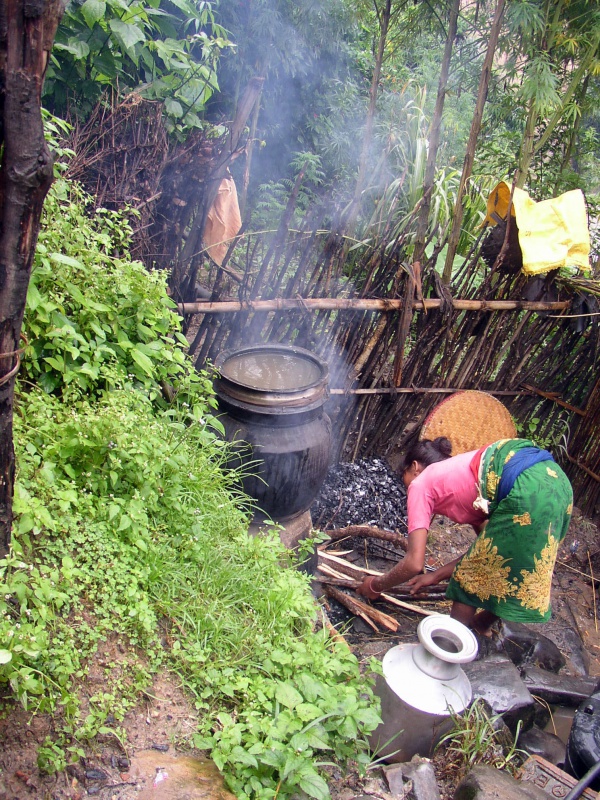Facts About Raksi
Raksi, also known as Rakshi Bantawa or Hengmawa/Hengma, is a traditional distilled alcoholic beverage enjoyed in Nepal, India, and Tibet. Often homemade, this potent, clear drink shares similarities with vodka or gin and has a flavor profile reminiscent of Japanese sake. It is typically made from kodo millet or rice, with the choice of grain significantly influencing its taste.
For the Limbu community, Raksi is a prized traditional drink, often served alongside tongba (a fermented millet drink) and meat sekuwa (grilled meat). Among the Newars, aila, another name for Raksi, plays an essential role in festivals and religious ceremonies.
In recognition of its appeal, CNN once ranked Raksi 41st on its list of the world's most delicious drinks, lauding its strong aroma and smooth finish. Despite its popularity, temperance movements, particularly those led by women's groups, are active in Nepal. Nevertheless, Raksi continues to hold cultural significance, especially during religious rituals and social gatherings, where it’s also valued for its purported antiseptic properties.
Raksi is typically served in a bhatti glass. During special occasions, it’s often poured from a height using a pitcher with a small spout, creating an eye-catching display. Most Raksi production occurs in rustic distilleries in rural areas, where it is often consumed without aging. The distillation process is notably wood-intensive.

 India
India